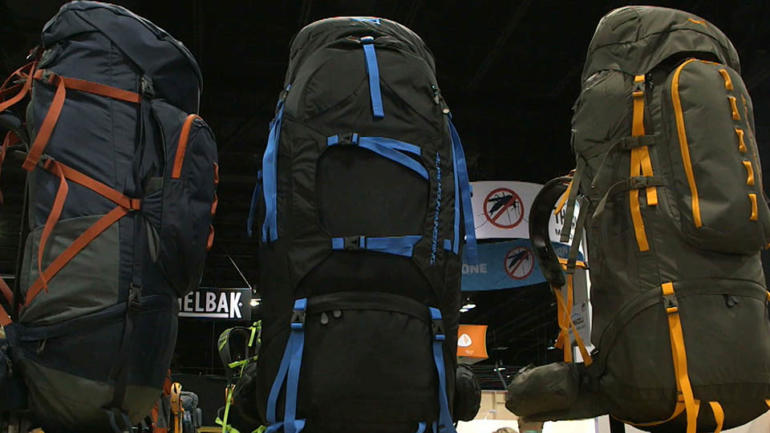Among those making their voices heard on U.S. President Trump’s proposed new tariffs on China are members of the outdoor industry.
CGTN America’s Hendrik Sybrandy was there.
The core philosophy of the U.S. footwear brand Keen is pretty simple: “To get people outside to play.”
A mini-carnival outside the Colorado Convention Center drove that point home this week. At the same time, perhaps more than ever, Keen’s executives are focused on dollars and cents.
“I have a big job,” said Keen’s Sara Bowersox. “I manage global trade compliance for the brand and I’m spending an inordinate amount of time worrying about tariffs in China.”
She has lots of company. Across the street, many businesses attending this year’s Outdoor Retailer Summer Market trade show have a story to tell about how U.S. tariffs on imports from China have affected them.
“Trucker hat for us was $25 and now it can be $30-32,” said Kay Martin, C.E.O. of Boco Gear. 90 percent of the company’s headwear is manufactured in China. She said tariffs, now at 25 percent, when added to existing import duties, have put the squeeze on her small firm.
“Basically what it’s doing is taking away profit,” Martin said.
The rounds of tariffs already imposed have been felt by some outdoor businesses, but not all. What really worries the industry is Round 4 or List 4 which covers products like tents, canoes, pants and hiking boots, big sellers with the summer approaching. The Outdoor Industry Association claims that round, if implemented, together with a recent tariff hike, will cost the industry an additional $1.5 billion each month. A burden many says has to be shared.
“Everybody’s looking at, oh, can I take a little bit out here, can I get a discount from my supplier, can I take it out of the costs in the supply chain and then pass a little bit onto the consumer, and then I eat a little bit,” Bowersox said.
One knife manufacturer said the unpredictability of the U.S. tariffs has hurt it most of all.
“You know we have to give notice to our retail partners if we’re going to make any changes in our pricing,” said Joe McSwiney, SOG’s C.O.O. “Consumers need notice as well, and it’s hard to do that when there’s uncertainty.”
“The most annoying thing is having it impact us by Tweet,” Martin said. She stressed that moving her supply chain isn’t an option. Her Chinese factory is just too valuable.
“From talking to my factory, they are hurting, but so are we,” she said.
Nervous company reps packed a session at the trade show dedicated to the issue and the prospect of more tariffs.
“Our highest tariff right now on some of our products at Columbia is 37.5 percent,” said Peter Bragdon, Columbia Sportswear’s Executive V.P. “If you tack on 25 to that, you very quickly have a product that can’t be sold at a profit and the American consumers are either going to pay the price or not get the product.”
The thought of folks downsizing or cancelling outdoor trips concerns Bowersox.
“That’s what I’m really afraid of is that people are going to use the additional costs of stuff they need to not do these things,” she said.
A potentially devastating blow to what is an $887 billion outdoor recreation economy.
“I’m spending more time indoors worrying about trade which I’m not thrilled about,” Bowersox said.
 CGTN America
CGTN America

